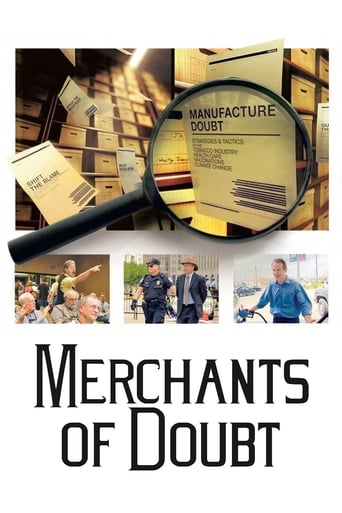


Merchants of Doubt
Spin doctors spread misinformation and confusion among American citizens to delay progress on such important issues as global climate change.
-
- Cast:
- Stanton A. Glantz


Similar titles
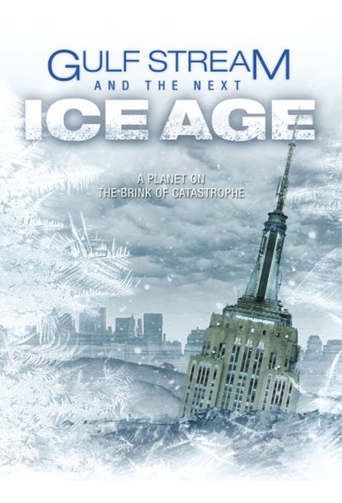



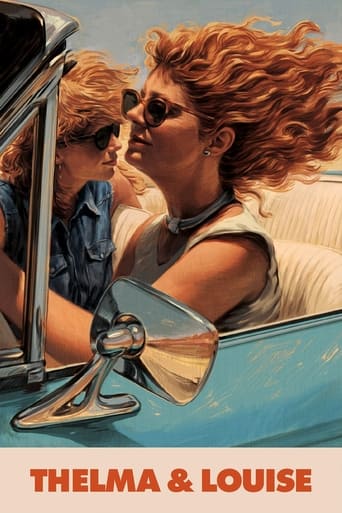
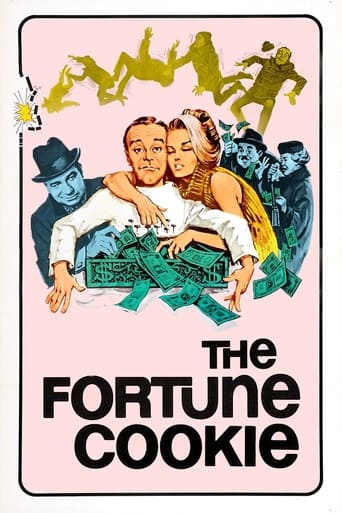

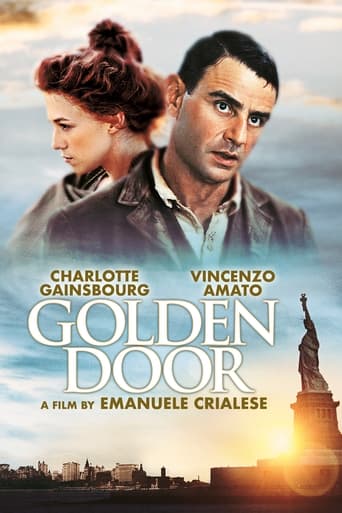


Reviews
Just perfect...
How sad is this?
Good , But It Is Overrated By Some
A movie that not only functions as a solid scarefest but a razor-sharp satire.
Merchants Of Doubt is a truly fascinating new documentary. By now, we all know the big tobacco story. You know the one about the cigarette manufacturers who knew, even prior to the surgeon general's 1964 declaration, that cigarette smoking was physically harmful and addictive? Then when scientific studies proved that, in fact, smoking does cause cancer, heart disease, and so forth, big tobacco testified under oath that the science community was wrong. They even called "expert" witnesses who cast doubt on the results of these studies, and called for even more testing – just to be sure. Later, when the results were simply beyond doubt, big tobacco and its "experts" continued to request no restrictions be placed on smoking, claiming our freedom was being infringed by so-called "big government" (read "big brother"). They developed the phrase "smokers' rights," to convince the rest of us that poor addicted smokers had no choice but to continue smoking, and that the rest of us should simply leave them alone. Lapdog "big government" bellyachers like Rush Limbaugh bought into this argument.Then came scientific studies bemoaning the dangers of second-hand smoke. And the experts came to the rescue again, first casting just enough doubt on the science to prolong the inevitable, and buy more time for the cigarette manufacturers. Eventually, fifty years after big tobacco first acknowledged (in private in-house memos) that cigarette smoking was harmful, the CEOs of the tobacco corporations were forced to go before Congress and admit they intentionally and systematically lied to America about the known dangers of their products.Now, just who were these so-called "experts" used by big tobacco to prolong the eventual demise of a once-powerful industry? A new documentary by filmmaker Robert Kenner attempts to shed some light. Merchants Of Doubt is based on the 2010 book of the same name, by Harvard professor Naomi Oreskes and NASA historian Erik M. Conway. Oreskes and Conway draw a fascinating correlation between the half-century of denial thrust upon us by the tobacco industry and the now-thirty-year denial of climate change by the oil and coal industries, particularly Exxon/Mobil. Ironically, some of the very same "experts" used by the tobacco industry to discredit the results of the scientific smoking studies are now being used to discredit the results of scientific climate studies.Oreskes researched every climate study published since the mid-1980s – almost a thousand different scientific works – and found the same thing Al Gore alluded to in his 2006 documentary, An Inconvenient Truth. 100% of climate scientists agree that global warming is not only real, but is man-made. Those who disagree may have science degrees, but they do not make their livings studying the earth's climate. Specifically, Merchants Of Doubt cites Fred Singer, a rocket scientist, and Fred Seitz, who helped develop the atomic bomb. Singer and Seitz, both of whom are interviewed in this film, were the very same physicists used by cigarette manufacturers to dilute the science condemning smoking. They have also cast doubt on the harm of acid rain, and the ozone hole. What do they have to gain by testifying against the rest of the scientific community? Money and fame.Singer, Seitz, and a very small handful of other scientists and marketing gurus have made a living by forming conservative thinktanks, such as the Heritage Foundation, and using them as a front for fossil fuel companies like Exxon/Mobil. For example, if a Sunday morning news program featured a climatologist arguing the science behind global warming with the CEO of Exxon/Mobil, no viewer would believe the CEO to be an independent voice. He'd obviously have an agenda. But if a "senior fellow at a prominent Washington thinktank" were to argue against the climatologist, the debate would now appear to be non-biased. And that's exactly what the big oil companies have done to buy time – just as big tobacco did throughout the second half of the twentieth century.Merchants Of Doubt takes the additional step of implicating the media for not investigating climate change more thoroughly, and for giving equal voice to these political thinktanks. As a former member of the media myself, I am continually disappointed in what has become of our once-great political watchdog. When Walter Cronkite visited Vietnam in 1968, then returned to the CBS Nightly News to declare there was "no light at the end of the tunnel," America listened. America took note. "If Cronkite says this war is a lost cause, then it must be," we thought. Who carries that kind of weight now? Heck, name one television news journalist who has the courage to personally investigate both sides of the global warming debate, then declare that climate change is real and must be addressed immediately, even if that means the eventual death of the American fossil fuel industries.If there is a light at the end of the proverbial climate change tunnel, it is addressed at the end of Merchants Of Doubt. The Tea Party movement was an outgrowth of perceived excess government regulation. Many Americans, under the guise of capitalism and free markets – don't want their government to regulate anything – even industries destroying our earth. As in the tobacco narrative, this is the final stage of denial before big oil is forced to admit they knew all along their products were ruining our atmosphere. Unfortunately, as Dr. Oreskes states, "This time we don't have fifty years." As documentaries go, Merchants Of Doubt is somewhat dry. To me, it's not as interesting a topic as Robert Reich's "Inequality For All," and it's certainly not as entertaining as a Michael Moore picture. But I loved it anyway. It brought to light nothing I didn't know (or at least nothing I didn't suspect), yet it still held my interest throughout, and, dare I say, fascinated me. That's the mark of a great documentary. You owe it to yourself to see this one.
Please note - I do not wish to express an opinion on whether the climate is warming or what may be responsible for it if it is. I only want to talk about the structure of this movie.OK, so the _point_ of this movie is to reinforce the idea that the climate is warming, and that it is man that is causing the warming through excessive usage of carbon. Secondarily, it supports the notion of a carbon tax to "battle global warming".How do they do it? First, they introduce an enemy no one can argue against - tobacco.They correctly show how professional deceivers and manipulators, "PR" companies, facilitated the continued killing of people all over the planet by weaving "doubt" into the public debate and therefore diluting the opinion against tobacco and short-circuiting or at least delaying and neutering laws that would tend to increase cigarette regulation.They interlace the magician/card-man into the narrative to sort of get you on their side by making you feel like an "insider", as if they are taking you into a private confidence.We are shown the magic and legal tricks and then we are shown the "suckers" who fall for the tricks. This makes us feel superior to the victims and reinforces the "insider" illusion. It _is_ an illusion because we are NOT insiders. We are just people watching a movie. No secrets are ever revealed.After they take us through the tobacco episode, they throw-in 3-card Monty and talk about the whole scam. For extra emphasis they even make the dealer and his shill black men just to take it over the top. After all, those guys cannot be trusted. Right? The use of racist stereotypes should be a clue for us as to the nature and character of the film makers. Once they firmly plant the idea that there are those who willingly deceive us for profit or other motives, and who are "bad men", we are set up to disbelieve anyone in a suit, or even any "so-called-expert" who tends to contradict the common opinion, after all everyone KNEW tobacco was killing people, it was the common opinion among the enlightened.And now for the point of the whole trick - Global Warming. Right off the bat they show us a science type, adjacent to the previously shown liars and con men as if in a prison line-up, who just happens to be presenting some pretty good evidence that there is more to global warming than just us driving our cars and heating our houses.BAM - guilt by association. And you never saw it coming.The thing is this: whatever you think about climate warming, that this film has deceived us by obvious manipulation should be an alarm. It goes to the character and intent of the film maker, and whether we should allow into our minds the "facts" they pretend to present.This film is a great piece of propaganda, whatever you think of the issue itself.I highly recommend it to students of manipulation. Compare to: the Fishead movie.
The infamous book by Oreskes and Conway is put to the test here to see if it can become a reasonable theater experience. "Reasonable", is probably the best word for it. We see video evidence of the amazing claims in their book, it seems watered down, as a matter of fact, they have to take pains to balance screen impressions of true believers with skeptics, which is always a difficulty but it is made important by their very thesis, that the skeptics substitute their unqualified personalities for their lack of science. They try to prove this by presenting several segments with Professor Fred Singer, presenting him as a rocket scientist, implying indirectly that he should be a dunce at climate, perhaps. The only other person in the theater besides my group, said that the film was a sad experience, but that she was going to show it to her university students nevertheless "to teach them the truth". Dr. James Hansen, the original speaker-before-congress of Warming is shown commenting on his four arrests, which he admits was a sorry substitute for "banging on the president's desk". Perhaps President Obama saw this film, and got the message.There is an interview with Marc Morano which uses contrived editing to make it appear that emails with death threats received by scientists were sent by him. This is probably the lowest point of the movie. On the positive side, there is some notion of how large the energy business is, how many people depend on it, and how 'experimental' and far away the alternatives really are.There are two other characters that seem to be only in there to forward the author's point of view, one is a card mechanist/magician who gives the moral point of view of Oreskes, that his own intentions are "honorable", but that those "deceptions" which are not admitted are not. Another is Michael Schirmer, the administrator of the American Skeptics Society, someone who has always given me the creeps, since he doesn't come across as a real scientist, which he again does in this movie, with his pat anecdote about how he had to switch sides in order to agree with Global Warming, and also his shouting match with a doubter in his audience. The other is Bill Nye, who is an actor, but whom the narration represents as a typical scientist being talked over by the "paid professionals" of the skeptical side.You may wonder why I've given the movie less than 5 stars if I said it was above average. Well, that fact that I don't necessarily agree with most of the points or points of view that I heard is the reason, not to mention the major thesis, which is that "consensus" means that anyone who disagrees should be denied a seat at the table. If such a dogma is meant to pass as a kind of, "Communism", then it indeed passes the test.
The film is standard boilerplate smear as outlined in previous reviews. What I'd like to add is that the film's director emailed me with the following:> > Dear Roger, > > People who mislead the public on climate change should not be on TV. Period. > > That's one big reason why I produced Merchants of Doubt, a film that lays > bare the greedy, shameful world of climate denial and the journalists who > broadcast it. That's also why, right now, we're launching a people-powered > national campaign that could keep climate deniers out of the news for good. > > Merchants of Doubt premieres in U.S. theaters today, and it will invite > thousands of energized viewers to sign this petition and join our campaign. > Let's lead the charge! > > Join me to tell TV network and cable news directors: Stop booking "merchants > of doubt" on your programs immediately.My response was as follows. Needless to say, I didn't get a reply.Dear Robert,Surely the best way to defeat a bad scientific argument is to engage with it and show how it is in error. Denying people free speech in the media only fuels the flames. There seem to be remarkably few scientists from the warm side of the debate willing to engage with prominent skeptics. Bring it on, I'm happy to discuss the physics of the enhanced greenhouse effect with anyone you care to put up. The problem for them is that the Stefan Boltzmann equation which was employed by goody and Young in 1964 only applies to vacuum's at absolute zero. i.e. space. Applying it to the troposphere is a fundamental error. That error has been repeated ever since in every climate model. That's why they are so far in error.Cordially Rog Tallbloke BA (hons) Hist/Phil Science.I'll just add that we should ask whether "People who mislead the public on climate change should not be on TV" includes people who exaggerate the extent of climate change and its effects, and whether, if this less one-sided blacklist turned out to include himself and the author of the book the film is based on, Naomi Oreskes, he would happily sell his video camera.
